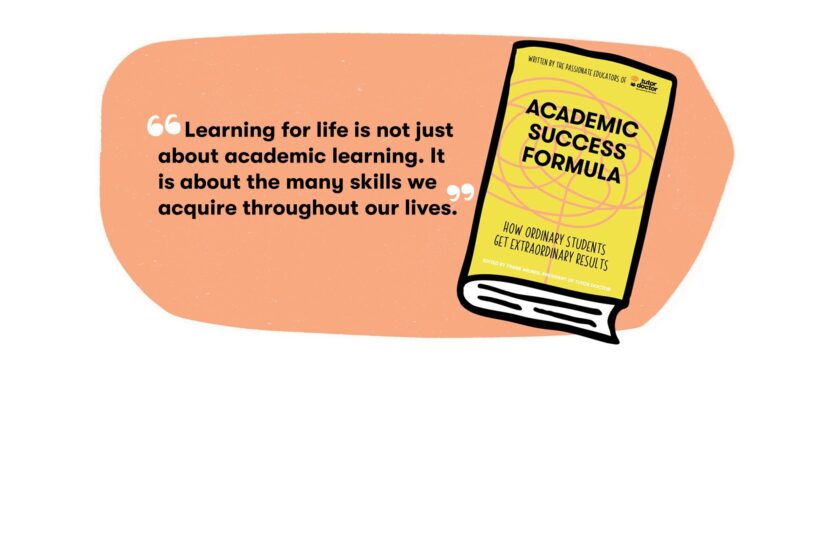This blog post summarizes the great insights from the ‘Learning for Life’ chapter in our Academic Success Formula book.
Lifelong learning is about so much more than just simply learning to pass required exams to move on to the next level. Although we often focus on making others proud, gaining degrees, or pleasing our employers – it’s really about learning new ideas and gaining an understanding of different concepts and topics throughout our entire lives. At Tutor Doctor, we don’t want to just prepare our students for the next grade. We want them to look forward to a lifetime of learning!
So what exactly is Learning for Life? We like to break it down in two ways:
- A lifelong learning perspective is more than training and continuing education: it forces us to rethink and reinvent our schools and universities.
- Learning for life should benefit the community and the environment.
In other words, learning for life isn’t just about academic prosperity, but also the many skills we acquire throughout our lives. In order to be productive members of society, students will also need to practice skills used in everyday life – from written word to verbal interaction. We believe students should to learn how to positively interact with others, whether it is in an academic or professional environment, or even just personal relationships.
The Lifelong Learning Council of Queensland describes four “pillars” of learning for life:
- Learning to know – mastering learning tools rather than acquisition of structured knowledge. In other words, having the tools to learn new information is more important than memorizing predefined knowledge or steps.
- Learning to do – equipping people for the types of work needed now and, in the future, including the innovation and adaptation of learning tools into future work environments. We don’t want our students to be prepared for just one skillset – the world is constantly changing, and we need to be able to adapt to remain successful.
- Learning to live together, and with others – peacefully resolving conflict, discovering other people and their cultures, fostering community capability, individual competence and capacity, economic resilience, and social inclusion.
- Learning to be – education and contributing to a person’s complete development: mind and body, intelligence, sensitivity, aesthetic appreciation, and spirituality.
Life skills are acquired in many different ways. Although we as a society often tend to focus on formal education, knowledge is also acquired from many other sources. Knowing how to utilize this information to form new skills is absolutely critical. Here are some ways besides formal education that we might also acquire life skills:
- Employment, including on the job training and experience as an employee.
- Running one’s own business enterprise.
- Learning through a mentor. Mentors can be beneficial, whether the mentor is a friend, family member, colleague, business associate – or tutor!
- Travel experiences and firsthand exposure to other environments, cultures, people, and places.
- Reading, whether from academic texts or recreationally from a novel.
- The internet, whether you’re browsing online encyclopedias or entertainment pages. Although cat videos are fun, there’s also a lot of valuable information on websites like YouTube!
We try to encourage the tutors we work with to embrace holistic learning. In other words, we want our students to appreciate the learning tools themselves. Nobody can fully prepare someone with all the information they will need throughout life, but having the tools to acquire new knowledge is necessary to being a happy and productive member of society – both now and in the future. Learning for life is about learning for your own life, and not someone else’s! In the words of this classic Chinese proverb:
Give a man a fish and you feed him for a day;
teach a man to fish and you feed him for a lifetime.


